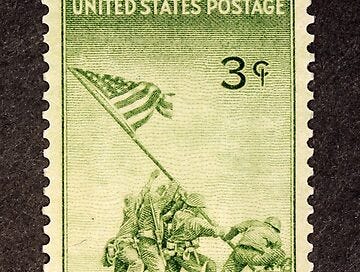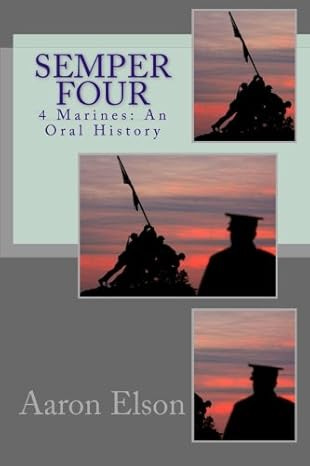After posting a couple of romance stories in the runup to Valentine’s Day, I realized that I missed my own anniversary. I posted my first Substack on Feb. 10, 2024! With the way subscriptions work, founding and paid subscribers are going to begin seeing their subscriptions automatically renewed, so if that’s an issue in today’s economy I hope you’ll convert it to a free subscription as I’d hate to lose you! (I took Substack up on an offer to give out a bunch of free “paid” subscriptions for a couple of months, and at the end of the period there were a bunch of “unsubscribes,” and I realized I should have automatically converted them to free subscriptions.
On a brighter note, a year ago I donated a library program to a fundraiser for the Connecticut Library Consortium. There were 20 different programs, including one other very interesting World War 2 related event. When the bidding ended, neither my nor the other WW2 program got so much as a single bid! I was devastated, but at least my misery was in good company, and the Library Consortium was kind enough to include me in this year’s auction, which ends on Feb. 20. When I checked the auction site, my program was marked “sold”!!! That was a relief. More details to come.
This past Saturday I was on the radio at 6:30 in the morning with Steve Parker at WTIC-AM. His audience always responds well when I play a few audio clips from my interviews. This time he asked if I had any audio clips related to Iwo Jima, so I brought five clips from my interview with Nick Paciullo, a veteran of the 4th Marine Division who was wounded twice on Iwo. We only had time to play the first three, so I’ll play all the fifth clip here, and then the other four. I didn’t have time on the radio to explain my feelings about the fifth clip, which we didn’t air, but of all the stories I’ve recorded, it sums up as much of World War 2 as is humanly possible in three minutes. (I edited out some material in the middle, which you’ll see in the transcript)
Aaron Elson: And what was your rank?
Nick Paciullo: I was a private, Pfc, corporal, private, Pfc, corporal ... I was a little bad in the service. I was with two gentlemen, two Marines I should say, from Chicago, Pudlow and McDowell. They were two crazy guys and I joined them too. And they were in my squad, and we had a lot of fun. We were always in trouble. But we got away with it.
Aaron Elson: Now you and Nat, I think his name was, were reminiscing about Swabbies and the Shore Patrol. Is that who you got into trouble with?
Nick Paciullo: Yeah, a little bit in San Diego.
Aaron Elson: Tell me what kind of trouble you would get into, if you can with your wife here.
Nick Paciullo: No, it wasn’t dirty or anything else like that. I’ll give you an incident, what happened one night. The three of us – in fact, there were about five or six of us, walking, and we see this big door open, like this. Big office. We walked in. We’re talking the pencils, and I took a chair with rollers on it, and I put one of the guys on the chair and we were rolling him around in San Diego. All of a sudden I’m pushing and I can’t go nowhere. They had my duty belt, it was an MP Marine, oh God, where’d these guys get this stuff? And oh, and we had a court martial. And we got away with it, because we didn’t rob anything, all we took was pencils and that one chair, and we were having a good time. But we got away with it. In fact, the following week, we went from Camp Lejeune to California. And then just before we get to California, they were having the zoot suiters terrorizing in California.
Aaron Elson: Zoot suiters?
Nick Paciullo: Yeah, the Mexicans, that’s what they were called.
Aaron Elson: Terrorizing?
Nick Paciullo: Yes. And when we got to California in what, Union Station is that in California? Well, “Everybody put on duty belts, rifles and bayonets.”
What the hell is going on?
At the time we didn’t know what was going on, and we were ready to clean out the streets. And then something must have happened, and instead of fighting the Mexicans they took us to Camp Pendleton.
Aaron Elson: There were like riots?
Nick Paciullo: Rioting, and they were doing a lot of crazy things. Zoot suiters.
And then Camp Pendleton, and we spent there a couple of months. And in ‘43, I think ‘43, we hit the Marshall Islands. The first time a fresh Marine division ever hit an island from the States to the enemy. It was the first time.
Aaron Elson: What were your thoughts crossing the ocean?
Nick Paciullo: I didn’t have much thought. I was, I didn’t think nothing of getting killed, shot or anything. I was very, we all talked and had a good time, we didn’t say “You’re gonna die” or anything like this ... (thumbing through a book on the 4th Marine Division) ... this is my buddy.
Aaron Elson: Richard D. Anderson?
Nick Paciullo: Yeah. That story, I don’t want to say that’s ...
Aaron Elson: (reading) ...gallantry and intrepidity at the risk of his life above and beyond the call of duty while serving with the 4th Marine Division during action against enemy Japanese forces on Roi Island, Kwajalein Atoll, Mariana Islands, Feb. 1, 1944. Entering a shell crater occupied by three other Marines, Private first class Anderson” – were you one of the Marines?”
Nick Paciullo: [he just sort of nods, which I took to be a yes, although I didn’t press him further.]
Aaron Elson: “...Private first class Anderson was preparing to throw a grenade at an enemy position and it slipped from his hands and rolled toward the men at the bottom of the hole. With insufficient time to retrieve the armed weapon and throw it Private First Class Anderson fearlessly chose to sacrifice himself and save his companions by hurling his body upon the grenade and taking the full impact of the explosion. His personal valor and exceptional spirit of loyalty in the face of almost certain death were in keeping with the highest traditions of the U.S. Naval Service. He gallantly gave his life for his country.” [This was Anderson’s Medal of Honor citation.]
Nick Paciullo: By the way, our last reunion, a couple of buddies of mine, they live in Washington State, Anderson lives in Washington State, and he was buried at Kwajalein. And they took his body and brought it back to Washington State where his family is. They did it about a year or so ago. Which was very nice.
Aaron Elson: Now was he in your platoon, you had trained with him and everything?
Nick Paciullo: My squad, yes. And he was the fourth guy that we used to go out with. Very nice guy. Pudlow was killed on Iwo, and McDowell lost his leg on Saipan. I almost lost my eye on Kwajalein, right after that.
Here are the other four clips:
Nick Paciullo’s full interview is included in my collection of four interviews with Marines from World War 2.





